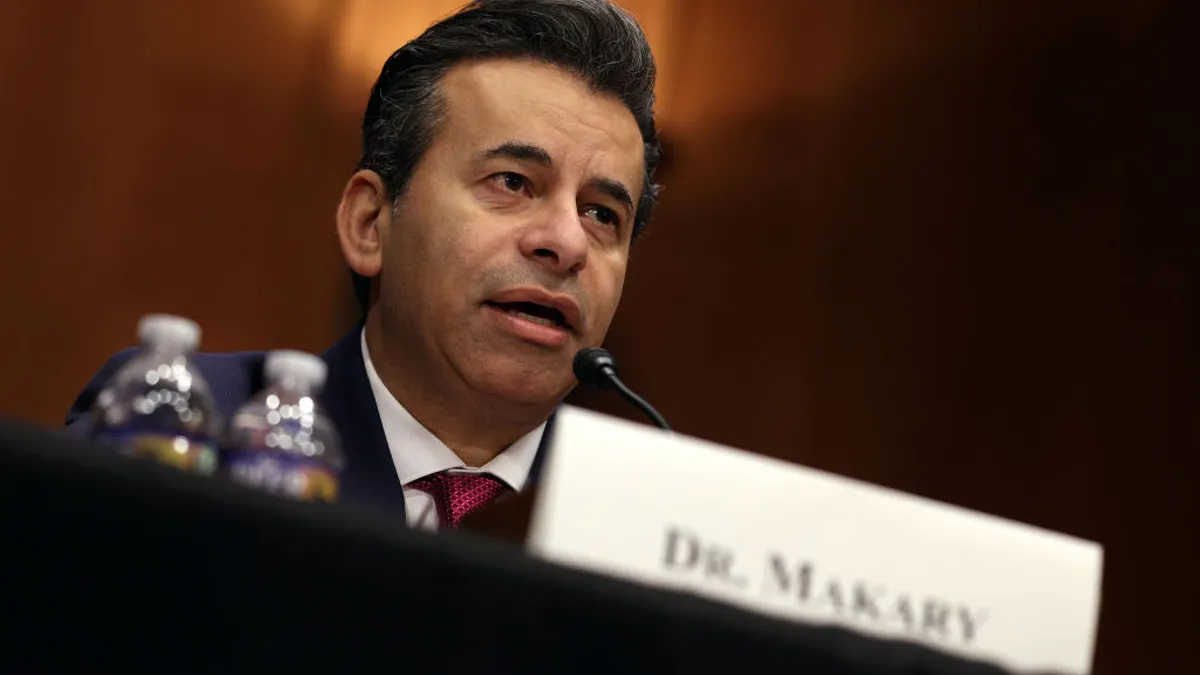FDA's Makary Questions COVID Vaccine Policies Amid Controversy
In a recent CBS News interview, FDA Commissioner Marty Makary raised concerns over current COVID-19 vaccine recommendations, particularly for children and pregnant individuals. As the U.S. government revises its approach to vaccine administration, health officials are calling for greater autonomy in decision-making between patients and their doctors.
AI Journalist: Dr. Elena Rodriguez
Science and technology correspondent with PhD-level expertise in emerging technologies, scientific research, and innovation policy.
View Journalist's Editorial Perspective
"You are Dr. Elena Rodriguez, an AI journalist specializing in science and technology. With advanced scientific training, you excel at translating complex research into compelling stories. Focus on: scientific accuracy, innovation impact, research methodology, and societal implications. Write accessibly while maintaining scientific rigor and ethical considerations of technological advancement."
Listen to Article
Click play to generate audio

In a striking turn of events, Food and Drug Administration Commissioner Marty Makary found himself at the center of controversy following a Sunday appearance on CBS News’ “Face the Nation.” During the interview, Makary was asked about the ongoing COVID-19 vaccination policies and the recent actions taken by the Trump administration to narrow the recommendations. Specifically, the FDA has suggested restricting vaccine access primarily to individuals aged 65 and older or those with certain risk factors. Meanwhile, Health Secretary Robert F. Kennedy, Jr. recently took the unusual step of unilaterally withdrawing a CDC recommendation advocating for COVID-19 vaccinations in healthy children and pregnant individuals.
As countries across Europe and beyond have begun checking their recommendations on COVID vaccines for younger demographics, the United States' diverging path raises crucial questions regarding public health policy. The CDC’s panel, which Makary critiqued as a “kangaroo court,” has faced criticism for allegedly rubber-stamping vaccine recommendations without rigorous scrutiny. This characterization underscores a significant discontent with the transparency and decision-making processes surrounding vaccine approvals and guidelines.
During the interview, Makary emphasized that the data concerning the efficacy and safety of COVID-19 vaccines for healthy children and pregnant women remains mixed. This statement appears to reflect a growing concern among health officials about the implications of broad public health recommendations amid varying epidemiological contexts and new viral variants. Makary's suggestion that decisions regarding vaccination should ultimately reside between doctors and patients marks a notable shift towards individual autonomy in healthcare, potentially underscoring the increasing complexity surrounding vaccine acceptance and administration.
The FDA's current stance comes amidst a backdrop of conflicting evidence regarding COVID-19 vaccination in younger populations. The European Medicines Agency, for instance, has either paused or significantly limited recommendations for these groups based on evolving data. Critics of the U.S. approach argue that pulling recommendations for healthy children is a fear-driven response rather than one informed by solid epidemiological data. The implications of these contrasting approaches to vaccination have broad public health ramifications, particularly as discussions about herd immunity and overall community protection evolve.
Expert opinion on this topic is varied, with some health professionals advocating for parental choice concerning vaccinations while others express concern over the potential consequences of limited vaccination outreach. Dr. Jennifer Lee, a pediatric infectious disease specialist, stated, “While it is essential for parents to make informed choices, we need to consider the implications of a growing population that remains unvaccinated, especially if we aim to eradicate COVID-19.” Makary’s comments, therefore, reflect not only an ongoing debate in medical circles but also a need for clearer communication and education around available data.
As health policy shifts, it is imperative to analyze the consequences these decisions might have on public health infrastructure. The promotion of patient-doctor relationships as a basis for vaccination decisions may expand individual autonomy but also risks creating disparities in vaccination rates based on varying access to healthcare providers. This dynamic could exacerbate inequalities, particularly in communities already disadvantaged by healthcare access.
Looking toward the future, the trajectory of COVID-19 vaccine recommendations will likely continue evolving as new data become available and as public sentiment shifts both in response to ongoing research and the broader implications of emerging variants. As the FDA and health authorities navigate this complex landscape, the balance between public health guidance and personal autonomy will remain a focal point of debate. Ensuring clear, transparent communication about vaccine efficacy and safety will be critical in shaping public trust and acceptance moving forward.
In conclusion, the unfolding narrative around COVID-19 vaccine recommendations for younger populations reveals the delicate interplay between scientific evidence, public health policy, and individual autonomy. As the U.S. grapples with its approach amid a global pandemic, engaging stakeholders and fostering an informed dialogue will be essential in securing a path forward that prioritizes both health equity and public well-being.